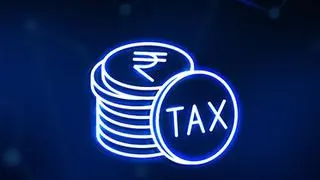Covid-19 has provided a fillip to personal mobility, but for those running tight on funds, pre-owned cars may be lighter on the pocket.
But before a consumer decides to purchase a pre-owned car, there are some checkpoints
If you are a first-time buyer of a pre-owned car, an entry-level car within ₹4 lakh would be an apt choice for you, especially if you have a tight budget.
As per OLX’s annual pre-owned cars market report — 2019 Auto Note — the ownership period of cars has declined from seven to four years. There are many online platforms to compare cars within your budget to get a good deal. As a standard rule, you may leave some niggle room of 5-10 per cent of your budget, if you get a car which is priced higher but meets your needs.
Most pre-owned car sellers are in a hurry to sell their cars since such cars depreciate rapidly.
This allows you to bargain with a potential seller and get a car within your budget.
Financing
As a thumb rule, one should finance the entire or a large chunk of the cost of a pre-owned car oneself as it can save one significant amount of money vs getting a pre-owned car loan. However, should one choose to get a loan, one should weigh in the following factors.
Examining loan offers : These days, it is relatively easier to get yourself a pre-owned car loan from banks, NBFCs, fintech platforms and dealers. The loan rates for pre-owned cars vary on a case-to-case basis, depending on the credit history of the person applying for the loan. A CIBIL score can range 7.5-12 per cent.
The loan rates can go over 20 per cent for some of the NBFCs if the credit history is not that favourable.
Another option to evaluate is obtaining a personal loan to buy a pre-owned car if the interest rate and processing charges are cheaper than a standard pre-owned car loan.
Banks may not be willing to provide a loan if the car is more than 2-3 years old.
Repayments : Often loan repayments start a couple of weeks after the loan is disbursed. In case you want to foreclose your loan, lenders may charge you foreclosure charges or a penalty.
Owing to your financial constraints, if your lender offers you moratoriums on your repayments, carefully consider the ,same since the interest can accumulate and balloon to a large amount.
An important factor to consider is that if the car you are buying has an outstanding loan, you should verify with the lender the credit history of the car payments and obtain a clearance certificate/letter on the same.
Documentation
Certain sellers may tempt you to skip certain documentation in lieu of a cheaper buying price, but you should exercise caution.
Pollution Certificate : The law makes it compulsory for every car owner to possess a valid ‘Pollution under control’ certificate. Cars need to renew their certificates annually; hence, ensure that while buying a pre-owned car, the certificate is not close to the expiry date.
Form 28 : The no-objection certificate (NOC, also known as Form 28) is a must-have and must be validated from the Road Transport Office.
NOC proves that the seller does not have any pending legal charges against the car. While obtaining the NOC, do ensure that you are complying with the ownership transfer regulations across States.
You can visit your local RTO or check online to get it verified. Sometimes,you may also be asked to submit an NOC from NCRB (the National Crime Records Bureau). Overall, the process of ownership transfer may vary from city to city, so it is advisable to check from the RTO concerned for the documents required.
Form 29 and 30 : Both these forms inform the RTO that the vehicle ownership transfer has been done. While buying a car, ensure that both the forms are submitted to the RTO. This process has to be completed within two weeks of you buying the car.
Follow up with the seller to ensure that this process is completed if you decide to buy the car within a two-week time-frame. If you are buying the car from a dealer, ensure that the transfer of ownership has been done from the previous owner.
Insurance transfer : Do ensure that you have transferred the insurance policy from the seller to your own name immediately after purchasing the car. While a pre-owned car without insurance transfer is road legal, having valid insurance will help you avoid any legal hassle.
Form 35 : If the vehicle was financed, it will have a hypothecation on the RC of the vehicle. To remove that hypothecation you need to show a proof that the loan has been paid back completely.
For this purpose, you will require a No-Objection Certificate and a stamped Form 35 from the bank concerned to complete the vehicle ownership transfer process.
The writer is Business Head, OLX CashMyCar








Comments
Comments have to be in English, and in full sentences. They cannot be abusive or personal. Please abide by our community guidelines for posting your comments.
We have migrated to a new commenting platform. If you are already a registered user of TheHindu Businessline and logged in, you may continue to engage with our articles. If you do not have an account please register and login to post comments. Users can access their older comments by logging into their accounts on Vuukle.